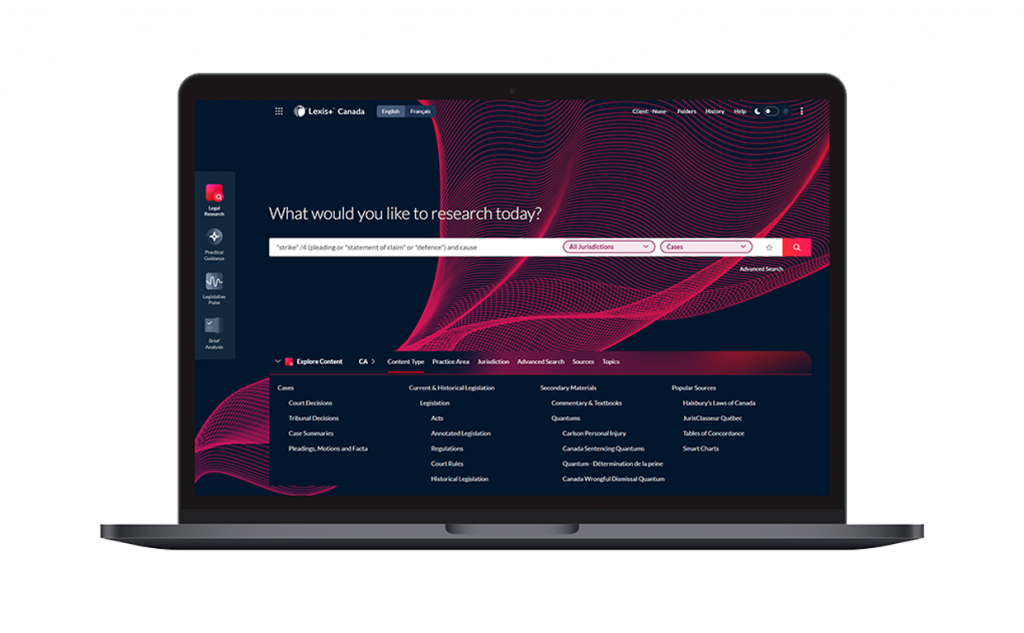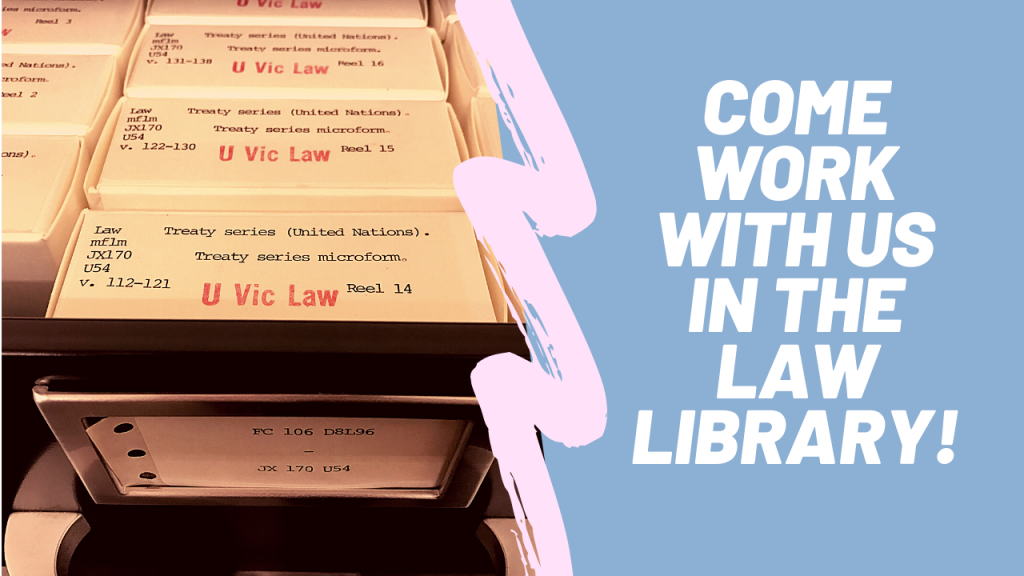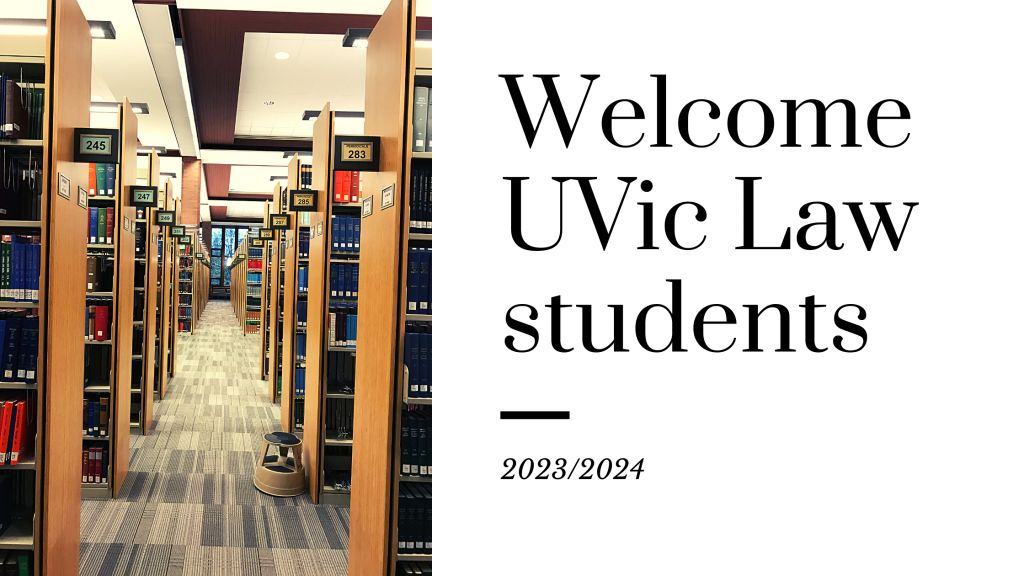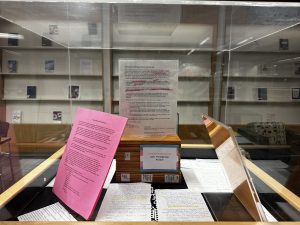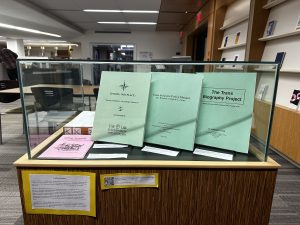Guest post by: Aman Atwal, 3L Student at the University of Victoria, Faculty of Law and Nicole Welsh, 3L Student at the University of Victoria, Faculty of Law.
The University of Victoria’s Business Law Clinic has been operating since 1998 to provide free legal research to BC entrepreneurs in pursuit of business-related goals. Led by Director Michael Litchfield, each semester a team of upper year students in the University’s Faculty of Law pursue their interest in business law by staffing the clinic. As the students are not yet lawyers, they are not licensed to give legal advice. However, the information that they can provide concerning business law issues as they relate to planning and operations provides benefits that are twofold. Students learn and put into practice valuable legal skills, and businesses receive useful information concerning legal issues that they might not otherwise be able to access.
Benefits to Businesses/Clients
Businesses/clients can greatly benefit from accessing services offered by the UVic Business Law Clinic. Benefits include the cost effectiveness of student clinics, the vetted information, and obtaining information from passionate individuals. Student clinics can also help to shed some positivity in the community, hopefully inspiring clients to continue the cycle of knowledge sharing and giving back.
Typically, clients are hardworking, under-funded entrepreneurs with great ideas who just require a little guidance. The information is researched by law students interested in business law, then read by the clinical professor and a lawyer who acts as a mentor to the students. This information does not function as advice but is helpful in guiding clients through the various questions they may have, providing them with the right tools and resources. Instead of turning to Google, clients can receive vetted information regarding their issues which can save the business from liability issues.
Clients are also able to receive customized information from those who are interested in the issues presented. The students generally take on clients who have an issue they are interested in, meaning they will likely work hard to obtain all the necessary information. When someone is interested in a topic, it makes them more motivated, resulting in better results for the client.
Accessing a student clinic allows clients with smaller businesses or who are just starting out, to save a significant amount of money which they likely will need for their business. Corporate lawyers’ fees can be quite expensive and student clinics are free. If clients only require information, tools, and resources, it is better to get free help rather than pay lawyers fees for information. The money saved can then go back into the business. Student clinics help alleviate some access to justice concerns which results in more people being able to obtain legal information and help. Many law students already understand the hard journey of getting into law school, including financially. This allows students to give back to community entrepreneurs who also experience financial struggle, hopefully resulting in a meaningful act of service that inspires clients to continue the cycle when they are able to do so.
Benefits to Students
Participating in a clinical semester at the UVic Business Law Clinic is advantageous for students in a number of ways. Most notably, students are provided the opportunity to better understand the lawyer’s role in facilitating business transactions for clients through the taking of a hands-on approach. Students develop their practical legal skills by learning and applying teachings related to client intake, interviewing, problem-solving, legal research and analysis, and drafting memoranda. Students strengthen their understanding of business law matters including contracts, various agreements, regulation, taxation, structure and financing. In doing so, the clinic also allows students to “test-drive” their future career in an area of law that interests them, to ensure the work is a fit for them. Additionally, by providing hands-on experience, students build confidence in the profession and enhance their employability skills. Students can speak to these transferable professional skills when interviewing with potential employers.
In exchange for their work, students not only gain real-world experience by working with local businesses, but also receive course credit that goes towards attaining their law degree. Students also benefit from knowing that they have made a difference in people’s lives by offering them access to legal information that they might not otherwise have access to.
Further, each student is paired with a local business law practitioner who acts as their mentor throughout the semester. While mentors are assigned to assist with client files and review students’ final work products, they are also encouraged to meet with students to provide advice and share valuable insight on practicing in the profession. In a career where new clients and work opportunities are heavily reliant on networking, it is vital for students to begin building such connections with legal professionals in their practice areas of interest. Building connections and developing relationships with local lawyers through participation in the BLC is a wonderful opportunity for students to expand their networks.
For more information on the Business Law Clinic, or to book an appointment, please leave a message on our voicemail at 250-472-4522, send an email to blc@uvic.ca or send a fax to 250-721-8146.
